Apostolates
[Daily Life]
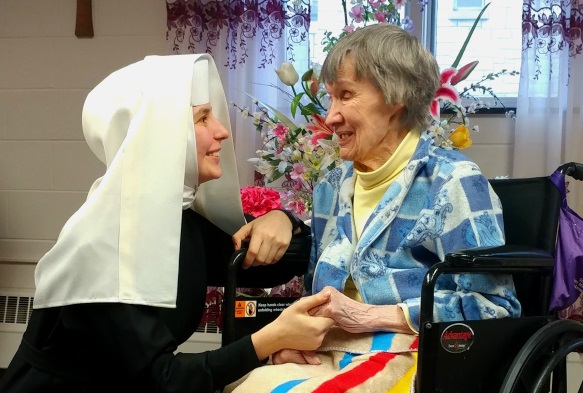
The fields where the Sisters serve are:
- shelters for the homeless
- soup kitchens for the hungry
- nursing homes for the lonely and elderly
- nurseries and shelters for children from dysfunctional families
- hospices for the terminally ill
- homes for retired priests
- parish foundations
- working in the missions
Locations:
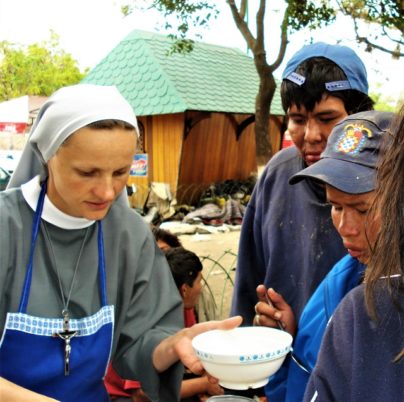
-At present
The Congregation conducts its activity in many institutions within Poland and outside the country. Under communism, the Sisters mainly worked in parishes, and closed institutions for the elderly and mentally disabled.
Since the nineties, the Albertine Sisters have been free to leave state institutions and have tried to undertake work in homes (shelters) directly managed by the Congregation. They have started opening these shelters for men and women, along with care homes, homes for single mothers, homes for mothers with children, kitchens for feeding the poor, and day care for needy children.
“The more one is abandoned, the greater the love with which we must serve that person,
since it is the wounded Lord Jesus Himself whom we rescue in the person of the poor”.
-St. Brother Albert
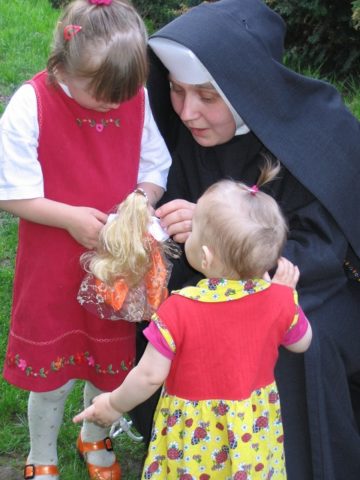
Sisters are present in every place where people need support and assistance because they try to fulfill the needs of the poor. The activity of the Albertine Sisters is very intense. Sisters show mercy to the needy, large families, and single mothers. Means for help are earned by the Sisters’ work. For over 40 years, the Congregation has also been serving the poor and needy outside of Poland.
*At the Vatican, the Albertine Sisters serve daily meals for the Pontifical Swiss Guards.
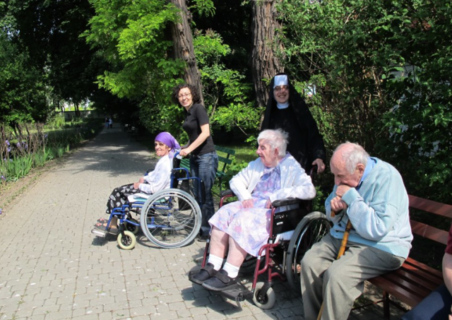
-In the beginning
In the 19th century, the authorities of many towns in Galicia (the present south-eastern territory of Poland and western territory of Ukraine) realized the importance of the Albertines’ service to society. With this in mind, they invited Brother Albert and his brothers and sisters to different towns in Galicia. The Albertine Sisters also spread across Lvov, Sokal, Tarnów, Stanisławów, Przemyśl, Tarnopol and Jarosław. During Brother Albert’s lifetime, about 20 foundations were established. Brother Albert’s idea of shelters were miniature “self-sufficient colonies,” where everybody, i.e. homeless people together with members of religious congregations established an independent community. Any poor person had the right to live in a shelter.
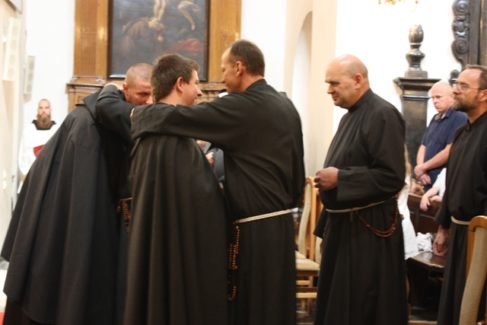
As Brother Albert said:
“the hungry must be fed, the homeless must be sheltered, the naked must be clothed, because a person who for whatever reason is naked, without shelter and a piece of bread, can only resort to stealing or bagging to survive, as in this miserable state they are unable to work and it is not easy to find work. So if there are no adequate places for such people in a town, they are left to the police, courts, prisons or hospitals, and these applications ring false if they bring negative effects.”
Big towns with the poorest districts were given priority in opening shelters, while shelters in small towns became homes for the elderly and disabled. Brother Albert wanted to create a network of shelters at main railway stations, mines, and harbors with large populations of workers and the unemployed. The economic inertia of Galicia did not favor the development of shelters. Despite the heroic efforts of Brother Albert and his Congregations, the shelters struggled with poverty. This extremely active and hard-working man spared no effort to feed the poor with bread. Apart from shelters, Brother Albert opened nurseries and homes for homeless children and youth, and institutions for the disabled, elderly, and terminally ill. Also, he took care of military hospitals and people with contagious diseases during World War I.
